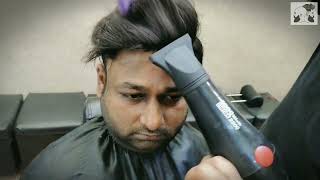Can Anesthesia Really Cause Hair Loss?
- Posted on 20 November, 2020
- Hot Topic
- By SNY Admin
For a major surgery to occur, anesthetics have to be administered deaden a part of the body that the surgery would most affect. Although the effects of anesthesia are very evident in your nervous system, there may not be a direct relationship with your hair growth. But then, can anesthesia cause hair loss or affect your hair follicle? This article will show you if there is any relationship between these two. Follow-through.
What is general anesthesia?
General anesthesia is a medication or a combination of medications administered to a patient who is about to undergo surgery. The purpose of anesthesia is to induce a much deeper sleep-like feeling on the patient so that they don’t feel the pains that come with the surgery.
This medication is administered to patients who are going for heart surgery, C-section, or have to use the heart-lung machine, and many others. Whether anesthesia causes, hair loss has been asked repeatedly by people who only started noticing the changes after surgery. Anesthesia slows down cell division, and Let’s go further to see if it really hinders hair growth.
How does surgery cause hair loss?
Anesthesia slows down cell division, and some parts of the body, including hair follicles, that need speedy cell division would have to be forced into the resting phase. However, this case doesn’t last for too long. In a matter of weeks, things will go back to normal.
Causes of hair loss:
A variety of things can make hair escape from your scalp, and most of them may not have anything to do with anesthesia or surgery. Below are some of the most common issues that can lead to hair loss or hinder growth:
1. Heredity
Alopecia is one of the most common causes of hair loss, and many people have decided to live with it. It happens to both men and women and is often associated with telogen effluvium, which is another condition on its own. When you begin to experience hair loss, you should, first, check your family history to see if mom or dad had the same issues. Alopecia can also come in a form known as pressure alopecia, which affects only one part of the scalp.
2. Hair growth cycle
The hair cycle is one thing that you don’t have control over. However, some wrong living decisions, medical conditions, and medications can alter the cycle. According to the American Hair Loss Association, there are three stages to it. below is a thorough breakdown of the cycle:
- The anagen phase: during this period, hair grows continually without stopping. Most of the hairs grown in this period lasts from two to seven years but hardly more. The length of your hair depends on how long your anagen phase lasts.
- Catagen phase: the catagen phase is the shortest of the phases. It lasts for only two to four weeks and involves the detachment of your hair strands from the blood supply. This stage is also known as the transitional stage.
- The telogen phase: this period comes directly after the catagen stage, and it is when you lose most of the hairs that have detached themselves from the hair follicles. This stage is a recovery process as new hair begins to grow underneath to replace the old ones. You can lose up to 100 hairs every day during the period.
The telogen phase can be largely delayed and, as a matter of fact, can be as a result of surgeries and the use of anesthesia. this can lead to telogen effluvium. Telogen effluvium is a type of hair loss where you lose more than the normal quantity of hairs during the telogen stage.
3. Medical conditions
Several medical cases can result in hair loss, and one of them is telogen effluvium, as already mentioned. other medical cases that can cause hair loss include:
- High blood pressure/blood flow problems
- heart diseases
- cancer
- arthritis
- depression
- stress
there are many others.
Other causes of hair loss include medications, the kind of surgery you are going for, poor diet/menu, changes in hormone levels (the stress hormone, especially), excessive weight loss, and many others. If you think you are experiencing telogen effluvium after your surgery with anesthesia, you can speak with your doctor to know the telogen effluvium type and the cause and the right medication to administer.
Solution for hair loss:
After surgery with anesthesia and discover hair thinning symptoms, you should probably visit your doctor or dermatologist to help you find the cause of your hair loss and possible solutions. Below are some solutions you can employ.
1. Scalp micropigmentation
Scalp micropigmentation is one of the best and most reliable solutions for hair loss. It simply involves using a handheld machine for implanting pigments that give the illusion of hair follicles. There is SMP for men and SMP for women. You will get your glow back in just a day without any pain.
It’s no news that hair may never grow on your head again, and most of the hair creams and drugs you use may not have any result at all, especially for alopecia, which is why you have to try out a method that. Solves the problem once and for all. Doing it with the best technicians means that you will not be left with an uneven hairline, which can mess up the procedure.
2. Limit stress
Engaging in activities that cause stress to your body can greatly increase hair loss. There may not be any direct evidence relating stress to hair loss; however, it could be coming as a distress signal from other parts of your body. Stress reduces your system’s functionality, and in most cases, it can affect your hair follicles. Reduce stress, and improve your hair
3. Healthy eating
Look at the content of everything you eat. Check the case of that product and see if it is healthy enough for consumption. The food in your daily menu has a way of affecting your overall wellness, and you must pay proper attention to it if you want to conquer hair loss or any other related condition.
4. Medication
Before you decide which medication to use, ensure that you know the content and the side effects. Visit your doctor to know what medications to use for your hair loss. If it is due to alopecia, you might have to live with the condition of go for SMP instead.
Conclusion
Hair loss can happen to surgery patients or just about anyone at all. However, there are other causes. If you have read through this content, you should know all that by now.
SMP may be the best solution you will ever come across. Search through the blog content on this website to learn more about it and other hair analysis content and do away with the scalp micropigmentation myths you have heard.




